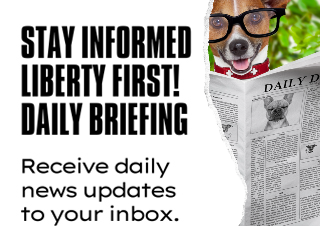“There’s a new poll out today.” Those words used to capture the attention of those who like to chew over politics. But things appear to be spiraling out of control this election season. If you’ve stopped picking up calls on your mobile phone, you may be the only person not to be polled this election year. That, of course, is a wild exaggeration, but somehow the plethora of polls makes it feel this way.
The Polls Salad Bar Is Open for Business
The daily dump of presidential surveys is getting utterly ridiculous and impossible to analyze. Reviewing poll numbers released just last week illustrates the problem. In the (marginally) swing state of North Carolina, three surveys were conducted Sept. 15-21. The New York Times/Siena has Donald Trump up by two points; The Hill/Emerson poll has Kamala Harris up one point; the Carolina Journal/Cygnal poll shows Trump up by one. What information can the average American glean from such numbers? Not much.
As the seesaw continues to undulate, it’s beginning to feel like the more information we have, the less we know. A couple of negative conclusions can be extracted from too much polling information. First, those trying to read the electoral tea leaves may decide to stop reading individual polls and pay attention only to the poll averages. All one needs to do is review how that worked out in 2016 to understand the pitfalls of poll averages, as The Hill reported:
“[P]ublic polls showed Trump trailing Clinton by between 3.5 points and 7 points in Pennsylvania during the final eight weeks of the 2016 campaign. Yet Trump ended up winning Pennsylvania despite never leading Clinton in any of the public polling averages of the Keystone State.”
Often, the crosstabs in a political survey make all the difference in its credibility, so not digging into a poll doesn’t help the situation and could make it worse.
The second pitfall of conflicting information in polls is concluding that such fluctuations mean a tight race is inevitable. The thinking goes something like this: With only one or two points separating the candidates, no one is technically ahead because it shows only that all the results are within the margin of error. Well, maybe or maybe not. Recently, several political analysts have made a case for a potential Trump landslide. If conflicting poll information means a close race, how could they possibly come to such a conclusion?
Close polling data could signal something else entirely, and this is a theory worth considering. What if those answering the surveys are not comfortable sharing their voting information? This reluctance on the part of “shy voters” may reflect their concern that revealing their true intention seriously impacted polling data in 2016, and as a result Trump’s election victory was, for many Americans, entirely unexpected.
Considering that the political environment has gotten only more toxic since then, doesn’t it stand to reason that the electorate would be less rather than more willing to share their voting preferences?
Another hypothesis questions the integrity of polls. Many political analysts believe polls are designed to support a predetermined outcome. The Hill quoted one Republican pollster who asserted, “I used to think it was incompetence. Now I think it’s part of the strategy. They’re trying to drive down enthusiasm. Why are you going to vote for somebody if you think they’re going to lose? And they’re trying to drive down fundraising and donations.”
Then there is the theory of genuine independent voters. Roughly 40% of Americans now claim no party allegiance, but that doesn’t mean they don’t lean one way or another. Many independents may have voted Democratic in the last four elections – they just don’t want to be part of the Democratic Party and all that it entails.
More data does not necessarily mean more knowledge. It could mean more confusion. And that is the way it’s looking this time around. Unless you have the time to dig deeply into each and every poll to determine its legitimacy, you might want to take these surveys with a grain of salt, which is always an excellent way to top off your plate from the salad bar. This way, you’ll be “unburdened by what has been,” if we take Kamala Harris at her word.
Liberty Nation does not endorse candidates, campaigns, or legislation, and this presentation is no endorsement.

No comments:
Post a Comment